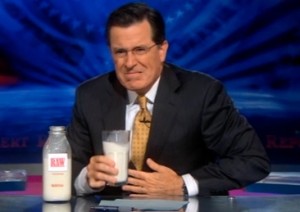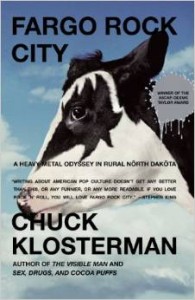Bioethicist Arthur Caplan, head of the Division of Medical Ethics, at New York University, tells Today Health, “Adults drive, cliff dive and smoke, but they have to be informed about risks. The ethical considerations become much more difficult when kids are involved.”
 That’s because kids disproportionately get sick from raw milk.
That’s because kids disproportionately get sick from raw milk.
This past week, West Virginia — which, like many states, bans the direct-to-consumer sales of raw milk —joined other states in a growing movement called herd sharing, which allows citizens of the state to sign a contract with a farmer, buy shares of a cow, and then to pay the farmer to care for the animals and milk them. These shareholders then get the milk in all its raw glory.
“A lot of states are looking at raw milk sales in one way or another, including herdshares, which are sometimes called cowshares,” says Pete Kennedy, president of the Farm to Consumer Legal Defense Fund, a group which opposes the ban against interstate sale of raw milk. “But it’s tough trying to get legal or expanded access to (raw) milk for people who want it, and state by state, it can get a little crazy.”
That’s because back in the late 1980s, the Food and Drug Administration prohibited the distribution of raw milk across state lines for direct sale to consumers. But the U.S. can’t halt products being made within a state to be sold inside that state. That’s led to a patchwork of state laws governing the sale of raw milk.
 In California, Connecticut and Pennsylvania, among other states, you can buy raw milk straight from a retail shelf or farmer’s market, according to the advocacy group. But in New York and Massachusetts, for example, you have to go to a licensed farm to buy raw milk. In Illinois and Kansas you can buy from an unlicensed farm, but if you live in Florida, you can’t buy it at all, unless it’s for your pet.
In California, Connecticut and Pennsylvania, among other states, you can buy raw milk straight from a retail shelf or farmer’s market, according to the advocacy group. But in New York and Massachusetts, for example, you have to go to a licensed farm to buy raw milk. In Illinois and Kansas you can buy from an unlicensed farm, but if you live in Florida, you can’t buy it at all, unless it’s for your pet.
Currently, the FDA, the World Health Organization, American Medical Association, American Veterinary Association, International Association for Food Protection, and the National Environmental Health Association advise against drinking raw milk, as does the American Academy of Pediatrics.
“People want to be more responsible for their sustainable environment and what they are putting into their bodies but they conflate the two issues because natural doesn’t always equal healthy,” says Dr. Yvonne Maldonado, professor of pediatrics at the Stanford University School of Medicine and lead author of the American Academy of Pediatric position statement on raw milk.
The dairy industry worries that illnesses from raw milk sales could damage public confidence in the safety of dairy products.
“I grew up on a dairy farm and anytime you start milking a cow I will tell you they start defecating, and it can get everywhere,” says Dr. Faith Critzer, a food microbiologist with the University of Tennessee and a food safety extension specialist for the state of Tennessee. “There are just too many points of contamination and pasteurization will get rid of contamination. It will save your life.”
“These are educated people and getting some to change their minds about raw milk is difficult,” she says. “But when things go wrong (with raw milk), they can go terribly wrong.”


 and a bag of potato chips.
and a bag of potato chips.